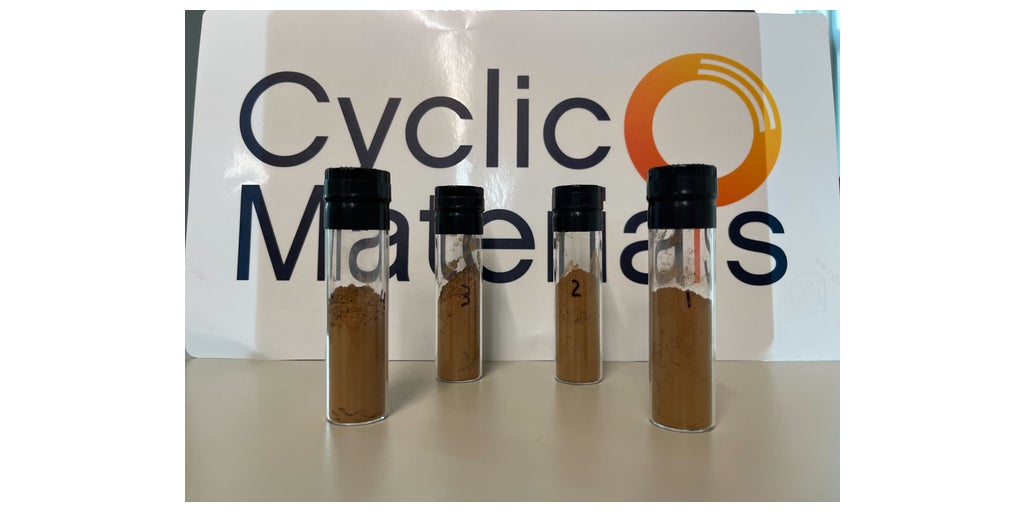
Cyclic Materials has raised $27m in series A funding for recycling “critical materials” and rare earth metals. Rare earth metals and critical minerals are used extensively in electrification and the manufacturing of renewable technologies and electric vehicles.
Energy Impact Partners and BMW i Ventures led the fundraising round, bringing the cumulative total to $30m. The series A funding round also included participation from Fifth Wall, Bioindustrial Innovation Canada and Planetary Technologies, a pre-existing investor.
The International Energy Agency includes lithium, nickel, cobalt, manganese and graphite under its definition of critical minerals, largely due to their use in the manufacture of batteries.
These metals are currently rarely recycled due to the difficulties associated with extracting them from end-of-life products.
Meeting projected critical minerals demand
The IEA claims that lithium demand in clean energy technologies must increase more than 40-fold between 2020 and 2040 to align with the net-zero targets of the Paris Agreement. Cobalt, graphite and nickel demand will increase around 20-fold, while manganese and rare earths demand will increase nearly ten-fold.
Cyclic Minerals acknowledges that “new mines are also necessary to meet projected demand” but “developing a domestic supply chain of high-quality REEs [rare earth elements] reduces the need for virgin material”.

US Tariffs are shifting - will you react or anticipate?
Don’t let policy changes catch you off guard. Stay proactive with real-time data and expert analysis.
By GlobalDataKasper Sage, managing director of BiV, said: “REEs are critical for many applications, from small electronics to large wind turbines, but are very challenging to produce,” adding, “the Cyclic Materials team has developed a novel process that can create a sustainable, secondary supply source”, that he claims will “secure the metals supply chain of the future.”
The global market for rare earth metals is expected to increase three-fold by 2030. Cyclic Minerals also processes recycled copper, aluminium, steel, cobalt and nickel. The company hopes to create “a more sustainable, domestic supply chain for rare earth elements” using circular models as an alternative for critical mineral sourcing.



